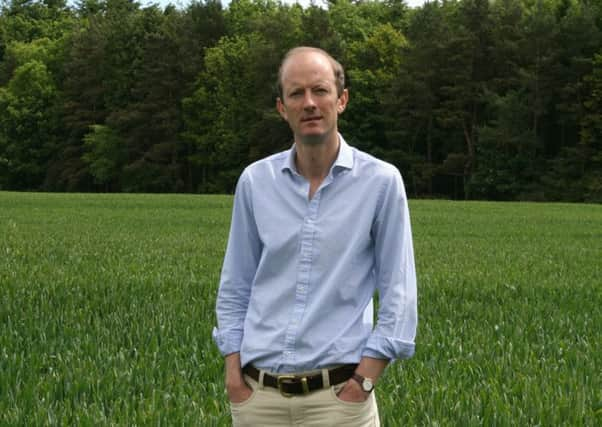The digital divide narrows, but rural areas still suffer


The finding forms part of Ofcom’s Connected Nations 2017 report, which shows broadband speeds and access remain worse in rural areas.
Ofcom is concerned that around 1.1 million homes and offices, or four per cent of properties, still cannot get the broadband speeds needed to meet their typical needs; around 17 per cent of rural premises are not getting decent broadband services, compared to just two per cent in urban areas.
Advertisement
Hide AdAdvertisement
Hide AdMeanwhile, updated coverage data shows that nearly six in 10 premises (58 per cent) can receive an indoor 4G mobile signal from all four networks, up from 40 per cent last year.
But too many people in the UK still struggle to get a sufficiently strong signal – particularly in rural areas and on roads and railways.
For calls and text messaging, 30 per cent of the UK’s geography does not receive a signal from all four operators – down from 37 per cent last year.
Mark Bridgeman, who farms on the north Northumberland coast, was last month appointed deputy president of the CLA.
Advertisement
Hide AdAdvertisement
Hide AdHe said: “It is ridiculous that eight out of 10 people in rural areas still do not have access to more than one of the major mobile operators.
“The existing target for mobile coverage is pathetically unambitious.”
Ofcom is taking a range of steps to help improve broadband coverage and speeds, including:
Promoting industry-wide investment in full-fibre networks. These connections can deliver far quicker, more reliable broadband. Ofcom is making it easier and cheaper for competitors to lay their own ultrafast networks using BT’s network of telegraph poles and underground ducts
Advertisement
Hide AdAdvertisement
Hide AdSupporting plans for universal broadband. Ofcom has provided technical advice to the Government on its plans for homes and businesses across the country, including in rural and remote areas, to have the right to request a broadband connection with a download speed of at least 10 Mbit/s and an upload speed of at least 1 Mbit/s.
Ensuring better information for customers. Broadband shoppers must receive better information about speeds before they commit to a contract and can walk away from their contract if speeds fall below a guaranteed minimum. New protections were set out by Ofcom in October.
Steve Unger, chief technology officer at Ofcom, said: “Broadband coverage is improving, but our findings show there’s still urgent work required before people and businesses get the services they need. Everyone should have good access to the internet, wherever they live and work. So we are supporting plans for universal broadband and promoting investment in full-fibre technology that can provide ultrafast, reliable connections.”
Ofcom is calling for further investment from mobile providers to improve coverage and Ofcom is also taking direct action, including:
Advertisement
Hide AdAdvertisement
Hide AdSetting new requirements in operators’ licences. Early next year we will consult on detailed plans to improve coverage in rural areas, by setting coverage obligations on mobile airwaves being released in future. The requirements would be written into licences of operators who are awarded 700 MHz frequencies, which are suitable for providing strong coverage over very wide areas.
Enforcing existing obligations. Mobile operators are already required to provide calls-and-text coverage to 90 per cent of the UK landmass by the end of this month, while O2 must provide an indoor 4G signal to at least 98 per cent of premises by the same time. We will report on mobile companies’ compliance with these obligations early next year, and any possible enforcement action if they fall short.
Increasing network capacity. In July, we announced plans to auction more airwaves this year to improve current mobile capacity, as well as frequencies for future 5G services. The auction is currently subject to legal appeal by BT/EE and Three, which we hope can be resolved promptly in the interests of mobile users.
Helping to improve coverage on trains. Ofcom has recently installed equipment on Network Rail’s engineering train. This will build a detailed picture of actual mobile reception across the UK’s rail network, informing our work with Government to help improve coverage.
Advertisement
Hide AdAdvertisement
Hide AdWorking with Government. We are also helping to implement new planning laws that will make it easier for mobile operators to improve coverage by sharing and installing equipment, such as mobile masts.
Extending use of signal boosters. In October we decided to allow controlled, unlicensed use of mobile phone ‘repeaters’, which amplify signals between a mobile phone and the operators’ transmitter. The changes come into effect early next year.
Steve Unger added: “People have never relied so much on their phones in daily life. As a nation, we are using 13 times more mobile data than just five years ago. While the industry works to improve mobile coverage, it’s vital people can get a trustworthy picture of reception across the UK. Using our tools, mobile users can see which network offers the best service in areas where they live, work and travel, before they take out a new phone contract.”